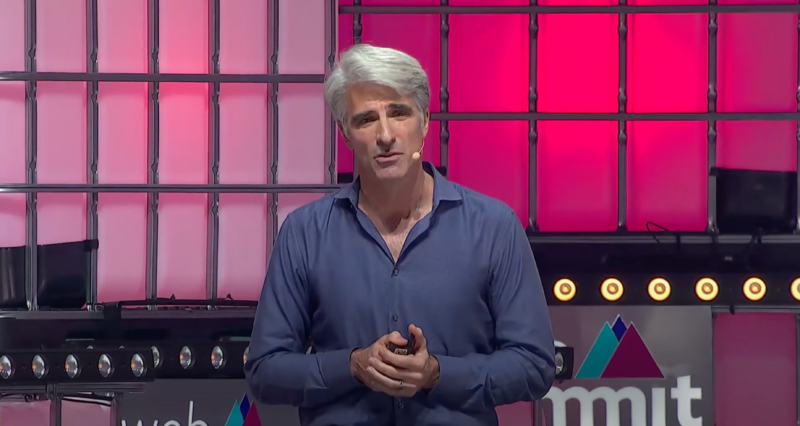Apple’s Federighi delivers dramatic speech on dangers of sideloading
"Our mission is to provide people with the choice of what we view as the best."


The presentation was accompanied by alarming slide imagery, like illustrations of sinister eyes lurking in the darkness outside peoples' homes.
In fact, Federighi compared mobile devices directly to homes and said that users with some homes (representing iPhones) suffer far fewer break-ins than users in other homes (representing Android phones). He said the difference is that the not-iPhone homes were less secure because they had always-open side doors that any intruder could walk through, and he likened the sideloading provision of the DMA to a mandate that every house have an unlocked door installed. . .While many of the statistics he cited about malware incidents on iOS compared to other platforms were accurate, he avoided the elephant in the room—that Apple's macOS for laptop and desktop devices also manages to have fewer malware incidents than its biggest competitor, even though it allows the sideloading of apps.
Apple takes a different approach to security on the Mac, requiring apps to authenticate in specific ways to launch. Failing that, users must go through an explicit, multi-step process to force the OS to let those apps run anyway. It still proves relatively effective.
Federighi also never mentioned Apple's likely other motive for fighting against sideloading: Sideloading would further hinder the company's ability to ensure it gets a slice of every app's revenue, after a US judge already chipped away at that capability by deciding that Apple must allow links to third-party payment systems in apps downloaded from the App Store.
He referenced the fact that the iPhone is in a minority market position by pointing out that only one in five Europeans have an iPhone as opposed to other kinds of smartphones (namely Android).
"Our goal has never been to sell the most," he said. "Instead, our mission is to provide people with the choice of what we view as the best."


No comments:
Post a Comment